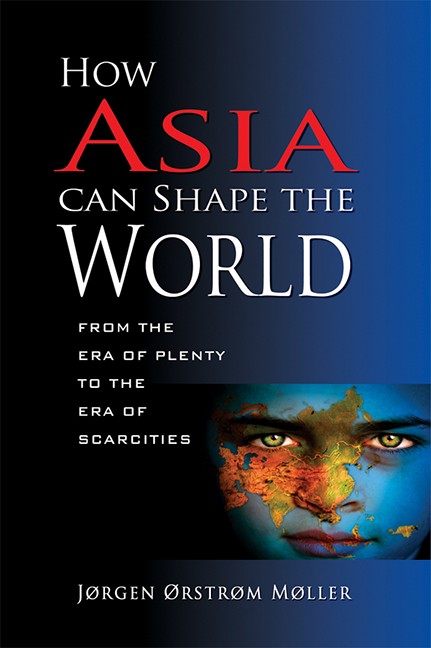4 - ACES OR DUDS
Published online by Cambridge University Press: 21 October 2015
Summary
This chapter analyses elements and policies primarily directed at people's mindsets, that is, how they act and react to challenges and how we enhance human capital/intelligence to serve not only the economy, but society as a whole. Topics such as education, creativity, social capital, gender, and megacities/megaregions stand in the foreground. They have as common denominators group behaviour, how people react when working together and asked to trust one another.
Their role is much more equivocal than the first group analysed in the preceding chapter. They can point in many directions and it is not clear which one will emerge. Much depends on government policies. If governments get it wrong they may turn from potential drivers to potential shoals, wrecking Asia's future.
No sector illustrates this dilemma and challenge more clearly than education, which must make itself relevant to society as a whole by serving as a stakeholder. The skills embodied in new generations are honed over the years inside the education system. The task is to sense future needs for skills so that the supply of skills matches the demand for skills. If this is not the case, economic growth suffers and, even more important, inequalities grow making it much more difficult to build social capital. The problem is to foresee what kind of jobs will dominate twenty-five years from now and what kind of skills they will require.
Furthermore the information and communication technology (ICT) revolution means that many of the well-established teaching/learning methods are no longer applicable, and yet applied. Young children wish to learn differently from those who are employed to teach them and this threatens to turn into a generational gap.
With new tools it is at hand to switch the education system from the assembly line — mass consumption model — to a more tailor-made system offering students individual training and building blocks to form a set of skills. As it is, students “purchase” education modules available on the shelf. In the future students may “compose” their own education, asking the education system to deliver according to specifications they set.
If education gets it right, using new tools and instruments to influence the mindset, a higher degree of creativity may be one of the main benefits. Creativity is the driver for society to turn out new products.
- Type
- Chapter
- Information
- How Asia Can Shape the WorldFrom the Era of Plenty to the Era of Scarcities, pp. 242 - 327Publisher: ISEAS–Yusof Ishak InstitutePrint publication year: 2010



